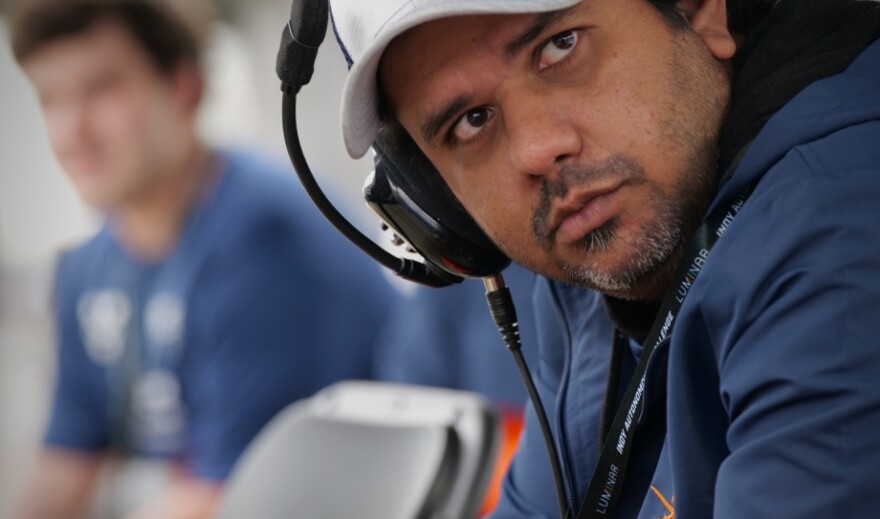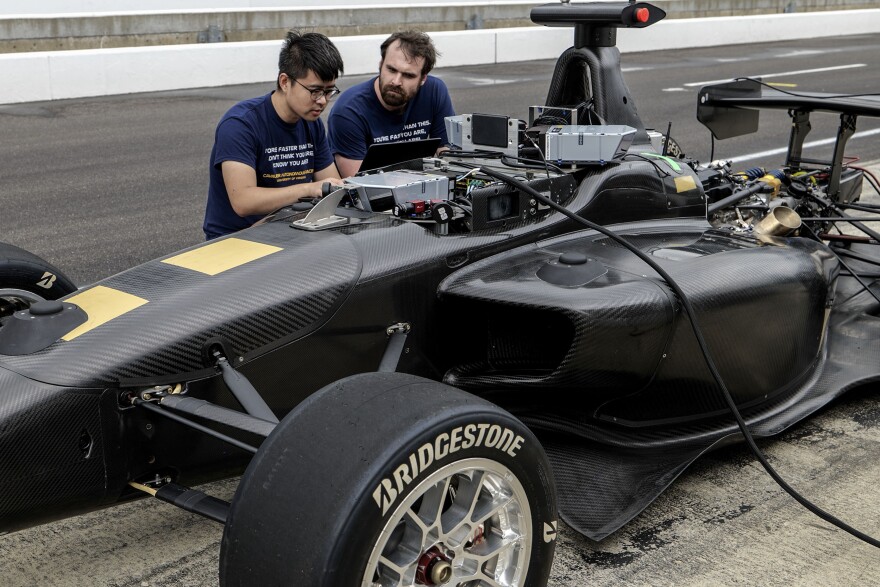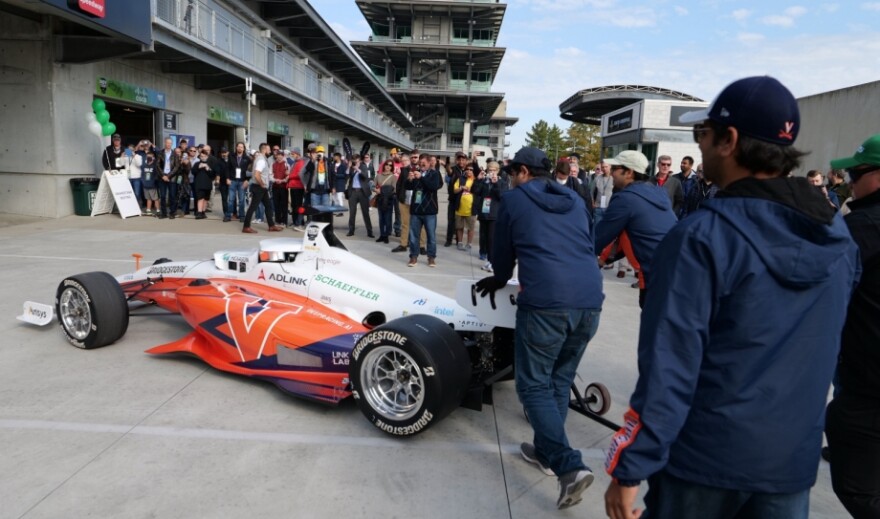Computer scientist Madhur Behl has devoted eight years of his life to studying and building cars that drive themselves, so he jumped at the chance to take part in an autonomous vehicle competition at the race track in Indianapolis last summer.

“Motor sports racing always has been the proving grounds for any kind of automotive technology, and many of the safety aspects of our commercial vehicles – they all have origins in racing," he explains. "The very first race was held because the automotive manufacturers wanted to convince the general public that the automobile is a safe vehicle – that it will brake effectively, and the engine will not blow up in your face.”
So he and 11 students took the kind of car you’ve seen at the Indianapolis 500 and equipped it with all the technology it needed to race by itself.

“These cars use very sophisticated sensors," Behl says. "We have six cameras which give us like a 360 degree-awareness and three lidars. Lidars are these laser-based range-finding sensors, and they produce millions of distance measurements every second telling us precisely how far every object is from the car in every direction. And then we have radar. We have very high precision GPS sensors.”
Forty different teams entered the contest which offered a million dollar prize, but Behl says only nine made it to the final round.

“One of the teams they just hit the wall. Another team just spun out because + it seemed like something went wrong with their GPS. I think we saw two or three major crashes during the event . Some teams, they had a very disappointing day and they struggled to even put their car on the track for a single lap.”
But the UVA car, painted bright orange and blue, came through with flying colors.
“We were able to run at an average speed of 120 miles per hour with a top speed of more than 125 miles per hour, so very fast for an autonomous race car, but we couldn’t surpass our European friends, so it was a European car which averaged about 136 miles per hour from the Technical University of Munich.”
Still, he says, it was a great learning experience, and the performance of so many autonomous race cars should help to persuade the public that self-driving vehicles can be trusted for everyday use.
“Nobody is testing these vehicles at high speeds or exploring how aggressively they steer when it matters most," Behl says. "The car is supposed to react very fast – faster than a human. “
Behl is a big fan of other motor sports, and he’s quick to say that autonomous racing will not replace traditional events like the Sebring 24 or the Indianapolis 500.
“At some point the crowd understands that these drivers are literally putting their lives on the line, and that’s what also makes racing very exciting. Everybody’s on the edge of their seat , and that’s why all of motor sports are very driver-centric.”
The autonomous race was like a time trial, with each car moving onto the track and doing five laps alone. UVA will have another chance to show just how fast, safe and responsive its vehicle is during the next round of competition, where cars will actually race at the same time and presumably pass one another.


